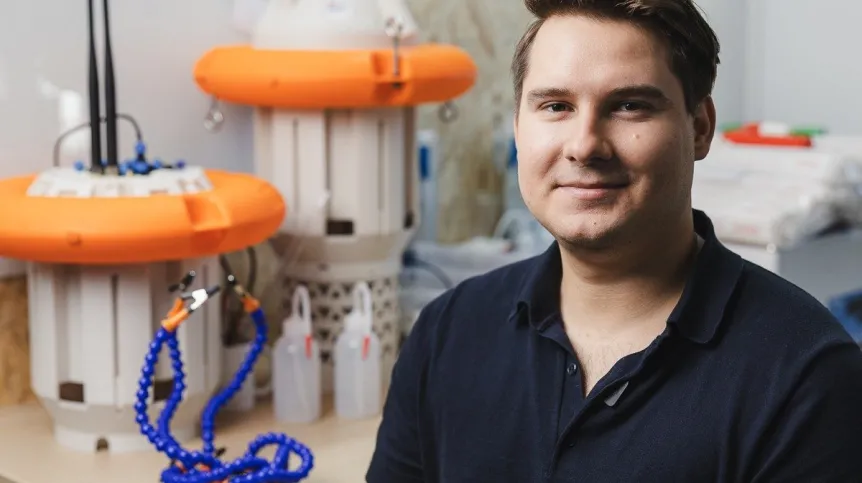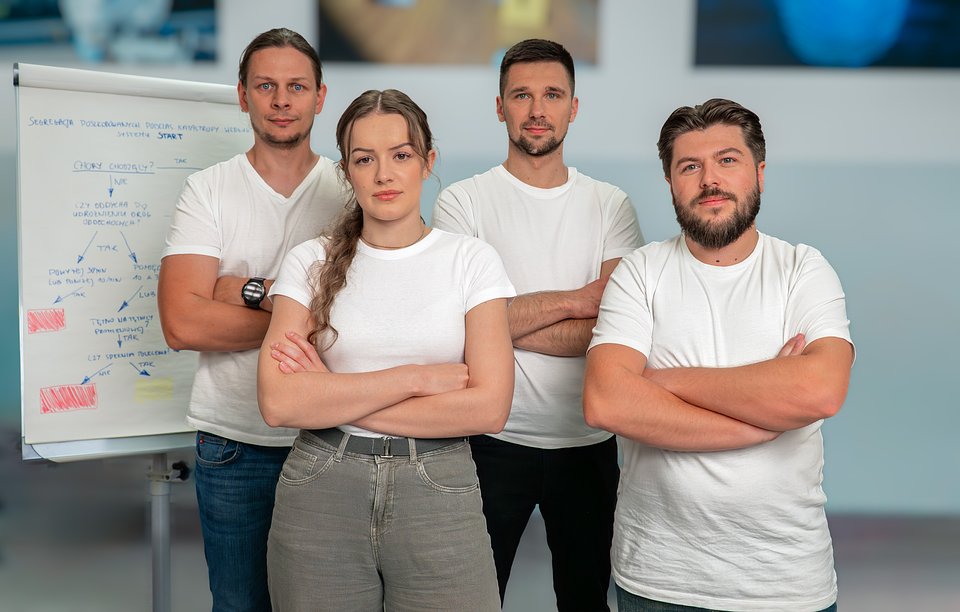
Two Polish inventions are among the Top 20 global finalists in this year’s James Dyson Award. Both inventions, a smart medical wristband that can save lives and an AI-powered water monitoring system, will compete for the competition’s international grand prize.
The James Dyson Award is an international design competition organised by the James Dyson Foundation. It has so far supported more than 400 inventions worldwide, providing funding and exposure for innovative solutions.
The Smart Triage Tag, developed by students from WSB Merito University in Poznań and Warsaw, is designed to improve emergency care management.

The device automatically monitors vital signs such as heart rate, oxygen saturation, and ECG, transmitting the data to an app that allows rescuers to track multiple patients in real time — even without internet access. It also adjusts a patient’s triage priority automatically if their condition worsens.
“We want to continue to improve the project, develop its concept, and strive for its full implementation. We are already taking steps to ensure that the prototype and the idea of our invention can actually become a reality,” said Jacek Bajer, leader of the Smart Triage Tag project.
The second Polish invention, WaterSense, was created by Filip Budny from the Warsaw University of Technology’s Centre for Advanced Materials and Technologies (CEZAMAT PW). The system enables automatic, maintenance-free monitoring of water quality in rivers and lakes.
It replaces disposable sensors daily and tracks more than 20 water parameters with laboratory precision. Data are uploaded to the cloud, visualised online, and analysed by artificial intelligence that can predict potential threats up to 72 hours in advance.
“We are currently intensively developing the project, preparing for an investment round that will allow us to begin building a monitoring network, starting with the Vistula and Oder in Poland and the Rhine in Germany, installing a total of 140 stations across over 1,600 kilometres of rivers by 2026,” Budny said.
The global winners of the James Dyson Award will be announced on November 5. The winning teams will receive over 150,000 złotys to further develop and commercialise their inventions. (PAP)
PAP - Science in Poland
ekr/ bar/
tr. RL













